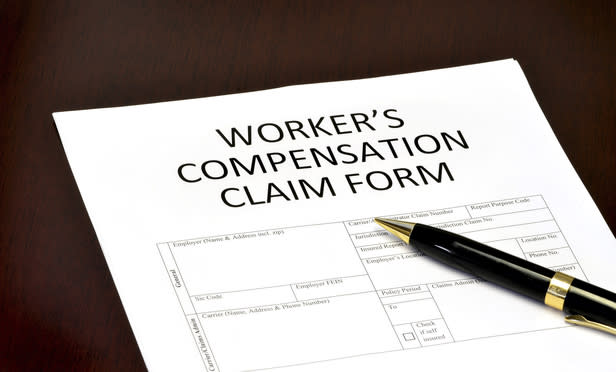'Protz': Problems for Practitioners and Politicians
On June 20, the Pennsylvania Supreme Court declared Section 306(a.2) to be unconstitutional under Article I, Section II of the Pennsylvania Constitution pursuant to the nondelegation doctrine in Protz v. Workers' Compensation Appeal Board (Derry Area School District), 161 A.3d 827 (Pa. 2017). Protz has electrified the workers' compensation bar.
For 11 years after its enactment in 1996, Section 306(a.2) allowed employers to seek modification of a claimant's disability status from total to partial and to limit benefits to 500 weeks by requiring the claimant to submit to an impairment rating evaluation (IRE) after 104 weeks of compensation. If the impairment rating was less than 50 percent, modification was automatic if sought within 60 days of the 104 weeks of disability, or modification could be awarded by adjudication if the IRE was requested beyond the 60-day period. Section 306 (a.2) directed that the degree of impairment be evaluated by an appropriately licensed and credentialed physician, pursuant to the "most recent edition" of the American Medical Association Guides to the Evaluation of Permanent Impairment. The Supreme Court in Protz condemned Section 306(a.2) as delegating a "broad and unbridled" authority to the AMA to create a methodology for grading impairments, without prescribed standards to restrain the AMA's discretion. The court deemed the General Assembly to have passed off de facto control over matters of policy to another branch or body the AMA. Because the valid provisions of Section 306(a.2) were inseparable from its void language requiring use of the "most recent edition" of the guides, the court struck Section 306(a.2) from the act in its entirety.
The day after the Protz opinion was dropped by the Supreme Court, there was a collective scratching of heads by the members of the workers' compensation bar. What would happen now? The Pennsylvania Bureau of Workers' Compensation partially answered that question by immediately announcing on the Workers' Compensation Automation and Integration System (WCAIS) that it was eliminating the process of designating physicians to perform IREs. Beyond that, there were no definitive answers to be found, just conjecture, speculation and contemplation.
Now that the aftershocks of Protz are abating, petitions are rolling in to test its boundaries. As the Pennsylvania Supreme Court did not address Protz's retroactive effect, considerable uncertainty on this issue abounds. In similar circumstances the court has held that a decision striking down a statute as unconstitutional applied retroactively, reasoning that the legal principle underlying the decision was not a rule of law, but rather the settled principle prohibiting delegation of legislators' power, as in Blackwell v. Commonwealth of Pennsylvania, States Ethics Commission, 589 A.2d 1094 (Pa. 1991). Importantly, retroactive application was limited to only those cases which were pending and in which the litigant had preserved the unconstitutionality issue. Also, as the Commonwealth Court indicated in Luke v. Cataldi, even when a statute is voided, it generally does not make "void ab initio" every decision ever made in accordance with the previously intact statute, and it is only parties involved in active litigation at the time who "may take advantage of that change," 883 A.2d 1114, 1119 (Pa. Cmwlth. 2005), reversed and remanded on other grounds, 932 A. 2d 45 (Pa. 2007).
If, down the road, Protz is deemed retroactive, employers can make similar arguments to defend attempts by the claimants' bars to exhume long-dead litigation. The Blackwell and Luke opinions should give employers hope when opposing reinstatement petitions in matters where the period of partial disability based on an IRE of less than 50 percent has lapsed. Employers can also argue against retroactive application of Protz in cases where there was an adjustment to partial disability status based on a notice of change in status that was never challenged within 60 days as required by the act. Res judicata might be asserted where there was a prior judicial determination that a claimant was partially disabled due to an impairment rating of less than 50 percent and no appeal was ever filed. Waiver arguments can be raised, but may be less likely to impress workers' compensation judges or the Workers' Compensation Appeal Board in current cases. Thus far, it has been the Commonwealth Court's inclination to consider arguments asserting the unconstitutionality of Section 306 (a.2) even if raised for the first time on appeal, so long as the "Protz issue" was raised at the first opportunity. See Beasley v. Workers' Compensation Appeal Board (Peco Energy), 152 A.3d 391 (Pa. Cmwlth. 2016); see also 2 Pa.C.S. Section 703; Pa. R.A.P. 1551(a).
The fate of an employer's opportunity to modify disability status and duration using IRE determinations now lies with the legislature. In the year preceding Protz, the Pennsylvania Supreme Court issued opinions in two IRE cases where they practically begged for legislative reform of Section 306(a.2). In IA Construction Corporation v. Workers' Compensation Appeal Board (Rhodes), 110 A. 3d 1096 (Pa. 2016), the court held that a workers' compensation judge had the authority to reject uncontradicted testimony given by a medical witness concerning an IRE that was performed. Chief Justice Thomas Saylor wrote that the "many difficulties" of the section "suggest, very strongly, that this is an area of law that is ripe for legislative review, so that the statute can be clarified and improved." In Duffey v. Workers' Compensation Appeal Board (Trola-Dyne), 152 A.3d 984, 996 (Pa. 2017), Saylor renewed his invitation for legislative action by writing: "Notably, we have otherwise identified deficiencies in the impairment rating statute and suggested that the system is ripe for legislative review and adjustment." The court held that "physician-examiners must exercise independent professional judgment to make a whole-body assessment of 'the degree of impairment due to the compensable injury,' 77 P.S. Section 511.2(1), which discernment cannot be withheld on the basis that the physician-examiner believes the undertaking is a more limited one." Disenchantment with Section 306(a.2) has now culminated in the Protz decision, where criticism was leveled at the process, but not the notion that an employer could obtain a modification of benefits limited to 500 weeks with an impairment rating of less than 50 percent. This is all a positive sign for litigants hoping for the legislature to enact a "clarified and improved" version of Section 306(a.2) which is devoid of the unconstitutional language but still allows employers the same rights.
Unless and until legislative action occurs, stakeholders in the workers' compensation system must grapple with Protz. For claimants, this likely means a push to nullify prior IREs of less than 50 percent via the petition process. For employers, it means developing a sensible and pragmatic strategy for the coming challenges of past IREs. That game plan will depend on the particular IRE situation facing the employer. Certainly, serious consideration should be given to withdrawing modification petitions based on an IRE that are presently in litigation before a workers' compensation judge or the board. Failure to do so could potentially subject employers to sanctions in the form of penalties and counsel fees. For all involved, this is a waiting game until there is a definitive determination as to Protz's retroactive effect, if any, and the legislature revisits, reforms and re-enacts Section 306(a.2) as version 2.0.



